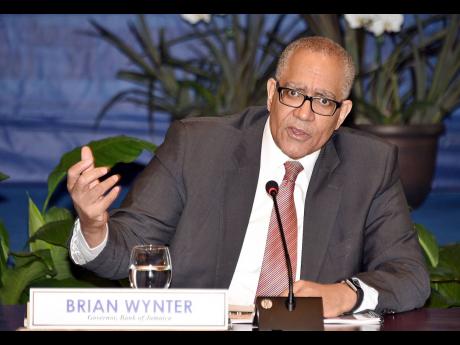The Bank of Jamaica, BOJ, will be reducing the cash reserves that deposit-taking institutions are required to hold against their prescribed liabilities by three percentage points to nine per cent, effective March 1.
The move is being made as part of the effort to improve the institutions’ ability to provide more credit to households and businesses at lower rates and on better terms.
That reduction will result in the release of $16.8 billion to deposit-taking institutions and, according to central bank Governor Brian Wynter: “Bank of Jamaica intends to make further reductions in the cash reserve requirements over the course of the year, based on assessments of market conditions.”
The liquid assets requirement is also being reduced by the same amount, but no changes will be made to the cash reserve and liquid assets requirements for prescribed liabilities denominated in foreign currencies.
On Wednesday, the BOJ lowered the policy interest rate – the rate offered on overnight placements with the central bank – by 25 basis points to 1.50 per cent.
“This decision reflects the bank’s forecast that inflation, which is currently below the target of 4.0 to 6.0 per cent, will again fall below the target at various times over the next eight quarters in the context of low core inflation and large seasonal increases and reductions in agricultural prices,” the governor said.
“Inflation will then slowly approach the midpoint of the target over the medium term,” said Wynter at his quarterly briefing on monetary policy from the bank’s Kingston waterfront headquarters on Thursday.
He said inflation can return to the target sooner if the pace at which private-sector credit is expanding is increased. However, he added that “signs are emerging that private-sector credit is expanding at a slower pace instead of a faster pace, even as lending rates at commercial banks continue to fall.”
Wynter noted, for example, that credit by deposit-taking institutions to businesses and households grew by 13.2 per cent over the 12 months to December 2018, compared to 16.2 per cent over the 12 months to September 2018.
According to the governor, increasing the pace of expansion in private-sector credit will stimulate increased economic activity by businesses and households across Jamaica.




Leave A Comment